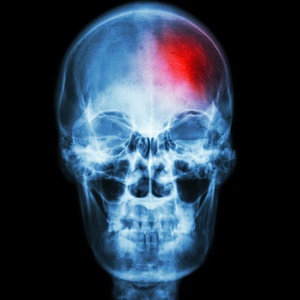
Stroke survivors at high risk for bleeding from drugs meant to prevent another stroke can be identified using a new scoring system, new research contends.
Many patients who have an ischaemic stroke – which occurs when a clot blocks blood flow to the brain – are given drugs to prevent another clot. But these anti-clotting medications increase the risk of bleeding problems that can cause disability or death.
Who is most at risk for bleeding?
In the new report, researchers analysed data from six large studies of people who survived a stroke or mini-stroke (transient ischaemic attack). Just over 43 000 people were included in the analysis. Of those, 1 530 had a major bleeding event – defined as bleeding within the skull or that led to death, a hospital stay or disability.
The risk of such an event was 1.9% in the first year and 4.6% over three years, the investigators found.
This report was published online in the journal Neurology.
To predict which patients were most likely to have a major bleeding event, the researchers used 10 factors to create a risk-scoring system:
- Being male
- Smoking
- Taking aspiring with or without dipyridamole or taking aspirin-clopidogrel
- A high stroke-disability score
- Having suffered from a prior stroke
- High blood pressure
- Low weight
- Old age
- Asian ethnicity
- Diabetes
Age the biggest risk-factor
Age was the biggest predictor of a patient's risk. The likelihood of bleeding ranged from 2% among 45- to 55-year-olds with no other risk factors to more than 10% for 75- to 85-year-olds with several risk factors, the findings showed.
"The increasing risk of bleeding with older age seems particularly important given the rising number of elderly people with a stroke or mini-stroke," said study author Dr Nina Hilkens, of University Medical Center Utrecht in the Netherlands.
About 30% of strokes occur in people over 80 years of age, Hilkens noted in a news release from the American Academy of Neurology.
"While the model may help identify people at high risk of major bleeding, it does not aim to guide treatment choices for antiplatelet [anti-clotting] drugs, as the risk of bleeding should always be balanced against the risk of recurrent stroke," Hilkens said.
Hypertension needs to be controlled
In South Africa, the biggest occurrence of strokes is because of high blood pressure. According to the South African Heart and Stroke Foundation, one in three adults worldwide suffers from hypertension, but will be mostly unaware because of the lack of obvious symptoms.
Legislation has been put into place to reduce the salt intake in South Africa in order to lower the risk of hypertension that leads to stroke and post-stroke bleeding.




 Publications
Publications
 Partners
Partners















